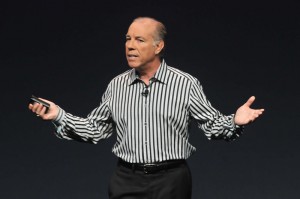Citrix CEO Mark Templeton has said that banning employees from working from home is an ineffective way of preventing slacking on the job.
Citrix CEO Mark Templeton has said that banning employees from working from home is an ineffective way of preventing slacking on the job.
At the Citrix Synergy conference in Los Angeles this week, Citrix made a slew of product announcements, designed to enable “mobile workstyles”, including the launch of XenDesktop 7 and XenMobile Enterprise, building on the company’s acquisition of Zenprise in 2012.
Templeton said that CIOs around the world are increasingly looking for ways to mobilise their businesses, and that mobile workstyles are needed to get the “best of the best” employees into organisations and retain them.
Earlier this year, however, Yahoo CEO Marissa Mayer outlawed home working, after she checked the VPN logs and found that some employees weren’t using the VPN often enough, suggesting that they weren’t working or contributing to the company.
“We need to be one Yahoo, and that starts with physically being together,” Mayer said in a memo sent to staff on 22 February.
Commenting on the story, Templeton told Techworld that it is the role of managers to make good decisions about mobile workstyles, just like it is their role to make good decisions about resource allocation and how to run projects.
“Marissa is making the decisions that are right for her organisation, and I’m sure she’s not the only CEO who has found places where the technology that enables us is there, but the discipline around policies and day-to-day management of mobile may leave something to be desired. So she made a decision and tried to put that genie back in the bottle,” he said.
“From our point of view, the technology infrastructure has to be able to express policies, but at the same time, expressing policies that don’t get used and articulated and leveraged in a consistent disciplined way are of no value.”
However, he added that the benefits of mobile workstyles outweigh the downsides. Designing around “mobile first” allows organisations to service employees at lower cost, he said, and when there is a disruption, those people can access the work environment remotely so that the business can continue to run.
“That event really bought to light the need to have the discipline around policies, because just turning off mobility and mobile workstyles doesn’t work either; but sometimes when you have a big problem you have to shut it off and then re-enable it,” he concluded.






